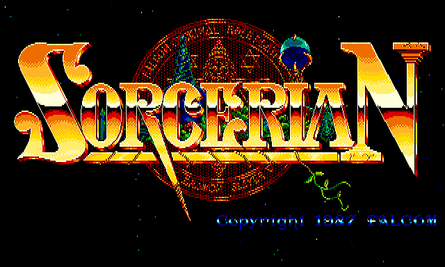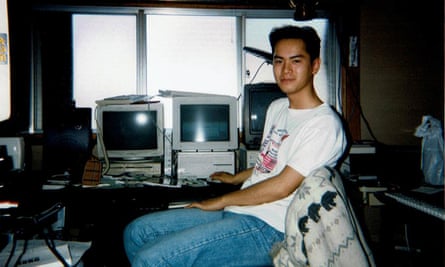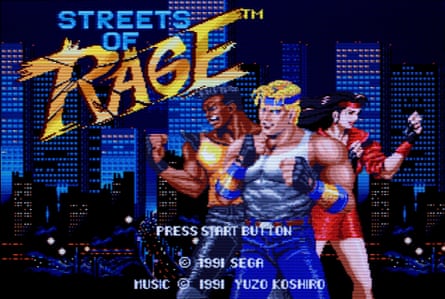Introducing Yuzo Koshiro: the soundtrack of your beloved game would not exist without his contribution.
F
Yuzo Koshiro, a Japanese composer, has contributed to a wide range of video game soundtracks, from the gritty settings of Shinobi and Streets of Rage to the fantastical worlds of Ys and Etrian Odyssey. With his technical expertise, he helped elevate video game music to the same level as movie and TV scores. He also had the foresight to secure the rights to his own music, something that is not always common in the industry. In many ways and in various fields, Koshiro has consistently been a visionary ahead of his time.
It all started when he covertly recorded the music from his preferred arcade games. He recalls, “As a teenager, I would hang out at amusement arcades where game developers would only release a handful of titles each year.” He goes on to explain that each game had its own unique electronic sound, creating an immersive experience in the arcade. Koshiro, along with other Japanese game music enthusiasts at the time, would bring a tape recorder to the game center so they could listen to the music at home whenever they pleased.

When I inquired about the songs he included on his personal tapes, he expressed a deep love for popular arcade game music, particularly well-known titles such as Space Harrier, The Tower of Druaga, and Gladius. He enjoyed transcribing these iconic compositions by ear and programming them on the PC-8801SR, an 8-bit Japanese home computer, using a music language.
These video games, with their brief and memorable tunes, greatly influenced Koshiro and served as the foundation for his early compositions. Both Ys in 1987 and Sorcerian had a similar sound to the one he had heard in arcades and learned to recreate at home. Koshiro had a dual talent – a natural ability for composing melodies (enhanced by his mother’s piano instruction, with one of her later students being Studio Ghibli’s Joe Hisaishi) and technical expertise. Koshiro taught himself how to program, as it was not enough to simply write music; he needed to understand how to create it as well.
“I reached a pivotal moment in my musical style with the creation of Misty Blue,” he muses. “Misty Blue incorporated elements from popular and disco music of the 1990s. It was during this period that I made a conscious effort to distinguish my music from other prevalent styles. I strived to infuse my compositions with uniqueness and push the boundaries by exploring new musical elements.”

Misty Blue – a peculiar mystery adventure about a musician investigating the death of music producer, named after a 1966 Nashville country song by Bob Montgomery – was the perfect place for Koshiro to start spreading his wings. It was experimental, self-aware, and ahead of its time. “As Misty Blue gained popularity and received love from fans, I gained confidence in creating music with a cutting-edge style that other game music didn’t have. This newfound confidence eventually led me to create the Streets of Rage series.”
The link between Misty Blue and Streets of Rage is evident. While Misty Blue used the lively rhythm and vibrant style of disco to create a somber murder mystery setting, Streets of Rage started with dance music and expanded upon it. Koshiro, who had become a successful composer and traveled the world, heard early techno songs in Los Angeles and was motivated to incorporate them into his own unique sound.
Combining aggression and vocals, pushing the relatively basic sound processor of the Sega Genesis/Mega Drive to its maximum potential with voice samples and impactful sound effects, Streets of Rage was a groundbreaking game. Its impact has not diminished over time; just recently, Koshiro went on tour as a DJ, performing music from the series at packed nightclubs throughout Europe. His music is beloved by both gamers and non-gamers alike.

However, Streets of Rage is not the source of Koshiro’s passion. While it may be his most well-known work and frequently recognized on “best-of” lists and compilation albums, his personal favorite lies elsewhere. Koshiro elaborates, “The Etrian Odyssey series holds the most significance for me because it brings me back to my musical roots.” The first three entries in this niche RPG series for the Nintendo DS intentionally utilize “FM synth” to replicate the sound of 90s RPGs. This method of programming audio allows for more detailed and expressive control over the resulting music.
Koshiro reminisces about his early days as a composer when he used the YM2203 FM sound chip for Xanadu Scenario II. Working on Etrian Odyssey and using FM synthesis again allowed him to reflect on his past and rediscover his musical abilities.
Disregard the newsletter advertisement.
after newsletter promotion
“In the 1990s, I had many goals for creating FM music. I worked hard to improve the quality of my music and develop my composition skills to meet the high standards of arcade games at the time. Unfortunately, I encountered significant obstacles and was unable to fully reach my goals at that time.”
As I revisited FM synthesis for the Etrian Odyssey soundtrack, I was filled with a fresh determination. Though I may not have achieved all of my goals, I made considerable strides towards them. This deepens my connection to the Etrian Odyssey franchise, as it symbolizes the fulfillment of my musical ambitions.
Koshiro has consistently strived to incorporate his own preferences into his work, whether it be amplifying the arcade feel of Ys or capturing the essence of techno music in Streets of Rage. He believes that Etrian Odyssey stays true to this approach even more so than his previous projects. Therefore, if you have a fondness for the flawless soundscapes of Streets of Rage, it would be beneficial for you to explore the intricate, melodious retro-inspired soundtracks of Etrian Odyssey. You may discover a newfound favorite.
-
The Etrian Odyssey Origins Collection can now be found on both PC and Nintendo Switch.
Source: theguardian.com



